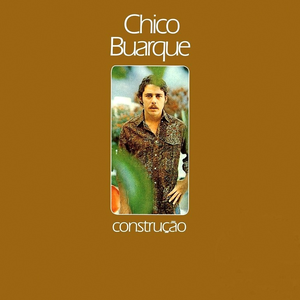The firstborn son of Sérgio Buarque de Hollanda, Buarque lived at several locations throughout his childhood, though mostly in Rio de Janeiro, São Paulo, and Rome. He wrote and studied literature as a child and found music through the bossa nova compositions of Tom Jobim and João Gilberto. He performed as a singer and guitarist in the 1960s as well as writing a play that was deemed dangerous by the Brazilian military dictatorship of the time. Buarque, along with several Tropicalist and MPB musicians, was threatened by the Brazilian military government and eventually left Brazil for Italy in 1969. However, he came back to Brazil in 1970, and continued to record, perform, and write, though much of his material was suppressed by government censors. He released several more albums in the 1980s and published three novels in the 1990s and 2000s.
In 2019, Buarque was awarded the Camões Prize, the most important prize for literature in the Portuguese language.
Valsinha
Chico Buarque Lyrics
Jump to: Overall Meaning ↴ Line by Line Meaning ↴
Do seu jeito de sempre chegar
Olhou-a de um jeito muito mais quente
Do que sempre costumava olhar
E não maldisse a vida
Tanto quanto era seu jeito de sempre falar
E nem deixou-a só num canto
Pra seu grande espanto convidou-a pra rodar
Então, ela se fez bonita
Como há muito tempo não queria ousar
Com seu vestido decotado
Cheirando a guardado de tanto esperar
Depois o dois deram-se os braços
Como há muito tempo não se usava dar
E cheios de ternura e graça
Foram para a praça e começaram a se abraçar
E ali dançaram tanta dança
Que a vizinhança toda despertou
E foi tanta felicidade
Que toda cidade se iluminou
E foram tantos beijos loucos
Tantos gritos roucos como não se ouvia mais
Que o mundo compreendeu
E o dia amanheceu em paz
The song Valsinha by Chico Buarque tells the story of a man who arrives one day to meet his partner in a different way than usual. He looks at her with more warmth than he used to and doesn't curse life as he normally does. Instead, he invites her to dance with him. The woman, who had not felt beautiful in a long time, puts on a daring dress and they embrace each other with tenderness and grace. They go to the town square and start dancing, attracting the attention of the whole neighborhood. They exchange so many kisses and screams of joy that the world understands them, and the day dawns in peace.
Line by Line Meaning
Um dia ele chegou tão diferente
One day he arrived so different from his usual way of arriving
Do seu jeito de sempre chegar
From his usual way of arriving
Olhou-a de um jeito muito mais quente
He looked at her in a much more intense way
Do que sempre costumava olhar
Than he usually looked at her
E não maldisse a vida
And didn't curse life
Tanto quanto era seu jeito de sempre falar
As much as it was his usual way of speaking
E nem deixou-a só num canto
And didn't leave her alone in a corner
Pra seu grande espanto convidou-a pra rodar
To her great surprise, he invited her to dance
Então, ela se fez bonita
So, she made herself beautiful
Como há muito tempo não queria ousar
As she hadn't dared to do for a long time
Com seu vestido decotado
With her low-cut dress
Cheirando a guardado de tanto esperar
Smelling like it had been stored for so long
Depois os dois deram-se os braços
Then they took each other's arms
Como há muito tempo não se usava dar
As had not been done for a long time
E cheios de ternura e graça
And full of tenderness and grace
Foram para a praça e começaram a se abraçar
They went to the square and began to embrace
E ali dançaram tanta dança
And there they danced so much dance
Que a vizinhança toda despertou
That the entire neighborhood woke up
E foi tanta felicidade
And there was so much happiness
Que toda cidade se iluminou
That the whole city lit up
E foram tantos beijos loucos
And there were so many crazy kisses
Tantos gritos roucos como não se ouvia mais
So many hoarse screams, as hadn't been heard in a long time
Que o mundo compreendeu
That the world understood
E o dia amanheceu em paz
And the day dawned in peace
Lyrics © O/B/O APRA AMCOS
Written by: Francisco Buarque De Hollanda, Vinicius De Moraes
Lyrics Licensed & Provided by LyricFind
